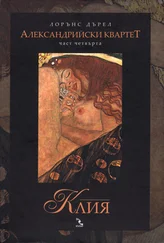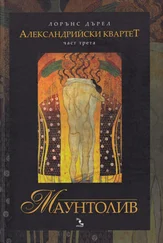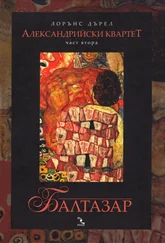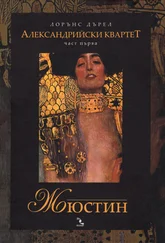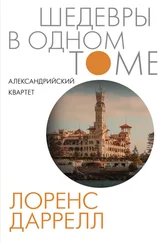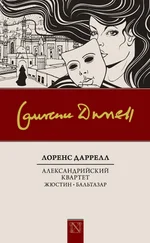Лоренс Даррелл - Prospero's Cell
Здесь есть возможность читать онлайн «Лоренс Даррелл - Prospero's Cell» весь текст электронной книги совершенно бесплатно (целиком полную версию без сокращений). В некоторых случаях можно слушать аудио, скачать через торрент в формате fb2 и присутствует краткое содержание. Жанр: Проза, на английском языке. Описание произведения, (предисловие) а так же отзывы посетителей доступны на портале библиотеки ЛибКат.
- Название:Prospero's Cell
- Автор:
- Жанр:
- Год:неизвестен
- ISBN:нет данных
- Рейтинг книги:4 / 5. Голосов: 2
-
Избранное:Добавить в избранное
- Отзывы:
-
Ваша оценка:
- 80
- 1
- 2
- 3
- 4
- 5
Prospero's Cell: краткое содержание, описание и аннотация
Предлагаем к чтению аннотацию, описание, краткое содержание или предисловие (зависит от того, что написал сам автор книги «Prospero's Cell»). Если вы не нашли необходимую информацию о книге — напишите в комментариях, мы постараемся отыскать её.
Prospero's Cell — читать онлайн бесплатно полную книгу (весь текст) целиком
Ниже представлен текст книги, разбитый по страницам. Система сохранения места последней прочитанной страницы, позволяет с удобством читать онлайн бесплатно книгу «Prospero's Cell», без необходимости каждый раз заново искать на чём Вы остановились. Поставьте закладку, и сможете в любой момент перейти на страницу, на которой закончили чтение.
Интервал:
Закладка:
As we move slowly down from the dead lands the road becomes more and more precipitous, and the green valley comes up at us in a trembling wave of fronds and branches. We roar through several small hamlets, scattering smoke and stones. A woman stands frowsily at her door and empties coffee grounds upon the stones. Two children sit under a bench playing with a tortoise. A policeman shouts something unintelligible. The bus is crammed with peasants going to market, and the air in it smells almost inflammable with garlic and exhaust fumes. Father Nicholas and his son sit just behind us. He has finally conquered his prejudice against southern women, and they are on their way to try and arrange a match with the Gastouri girl whom we had seen at the Kastellani dance. Father Nicholas is in great voice and keeps the whole busin a roar of laughter. Our feet rest upon a fluttering floor of chickens, all tied by the legs in bunches, like vegetables. His son looks rather ashamed of himself. It is not altogether restful, this journey. At each of Father Nicholas's jests the driver lets off a peal of laughter in a high piping voice and, letting go his hold upon the wheel, hugs himself with extravagant joy. At these moments the bus shows signs of wanting to mount the stone parapet of the road and fly down into the valley. This tendency is corrected at the last moment, when all except the hardiest travellers have commended themselves to St. Spiridion and flung one arm across their eyes. With prodigious roaring and scraping of brakes we rattle down the mountain like some iron cockroach, and draw up at last in clouds of dust, before the little tavern at the crossroads where Spiro had already parked his great Dodge under the olives, and is busy arguing about the price of wine with the innkeeper.
We sit for a while over a glass of wine with him. He gives us the gossip of the town in his wonderful Brooklyn argot — strange fragments of words with whole syllables discarded from them when they are beyond his pronunciation. Spiro's noble stomach reposes comfortably on his knees. His forearms are covered in a black pelt of hair. He is sweating easily and comfortably from every pore. In the dark shadow thrown by the trees, with the red reflections of the tablecloth playing about his dark, good-natured face, he reminds me of nothing so much as a great drop of olive oil. He informs us, with self-importance mixed with a certain shame, that a fire broke out the previous afternoon at a garage. As one of the firemen he had had his first practical experience of fire-fighting. On the whole the affair had been rather a scandal. The brigade had arrived in good time, clinging importantly to the new fire-engine which the Government had provided, each in his gleaming helmet. Spiro himself had arrived, but riding majestically in his own car, with his helmet on. The garage was well alight. The balconies of the surrounding houses were thronged with sightseers, waiting to see the recently formed Fire Brigade prove itself in its first baptism of fire. All went well. While the hose was being uncoiled, the Chief of Police made a short but incisive speech exhorting everyone to stay calm and not to give way to panic. The fire hydrant was unlocked and everything placed in position to extinguish the blaze. At this point, however, a disgraceful argument broke out as to who was going to hold the nozzle of the hose. Words became gestures. Gestures became acts. A push here, a scuffle there, and riot had broken out. A struggling mass of firemen began to fight for possession of the nozzle. At this point the hose bulged and began to emit a creditable jet of water, and what was to be a baptism of fire became a baptism of water for the onlookers. A slowly rotating fountain of water moved across the square. The Minister for the Interior, who had been standing innocently on his balcony in heliotrope pyjamas, was all but swept into the street by the force of the jet. Women screamed. The long-averted panic against which the Chief of Police had warned them broke out. The affair ended with a baton charge and a number of arrests. The garage was left to burn itself out. The engine was driven home in disgrace by a civilian. And Spiro tendered his resignation.
Driving easily across the low hills where the vineyards have already taken on their ochre tones, he seems a little hurt that we find the story funny. 'It's not a good thing', he tells N. repeatedly, 'for the nation when the bastards do that.'
We sweep up the long drive and round to the side of the house. The Count is sitting at the edge of the orchard, under a tree, reading with his dogs beside him. He is clad in pyjamas and a straw hat. He waves his hand and signals us to cross the sunlight-dappled walks.
'Ah! you will forgive my pyjamas,' he says. 'The others have not arrived yet. I am half drunk just reading through Mazziari's description of the grapes. Come, let us take our pick.'
The vineyards are already beginning to look gutted and burnt out with shrivelling leaves. The Count walks ahead with us stopping here and there in all the profusion to clip a bunch of grapes with his scissors, which he carries tied round his waist on a piece of string. 'Ah, my dear, where have you ever seen such plenty?' he says. Indeed the variety is astonishing. 'We will ignore these plump ones with the thick skins. But try these violet coloured ones. You may find them too sweet. We have had three days' torture preparing for the gathering. So many extra mouths to feed. Plasterers, treaders, and whatnot hanging about the house.' The great doors of the magazine are ajar. The huge vats and butts have been dragged out into the meadow for caulking and patching. Under a tree a small army of men is at work upon them. Some have been turned upon logs, and are being filled with gravel and water, before being rolled. Others are being mended and scoured. 'The big one in the corner,' says the Count, 'she is the one you have to thank for the crimson robola wine which you think so good — and which even Zarian likes.'
The shadow of the cottage-pergolas seems rich with the scent of grapes — of blunt sweet muscatel and lisabetta. Ourania cuts down heavy clumps of them for the table, holding them in her brown arms and smiling. They are covered in a rich misty bloom still.
Meanwhile across the orchard the Count is in full voice: 'The little amber ones and those which look ice-green and closely packed — they have done very well this year. Farther on we shall see the rhoditi. They run blood-red when the sun shines through them; coral rather, like the lobe of an ear. Dear me, we shall all have indigestion. Ah! Here comes the Doctor and Zarian — beyond the olive-trees there. And his wife. Zarian looks extremely puffed as usual. And Nimiec.'
By lunch-time the rest of the guests have arrived, and are seated at tables laid under the arbour which bounds the last terrace. A tremendous meal has been prepared, and three of the prettiest village girls are there to serve it. Zarian openly bemoans having brought his pleasant American wife with him. 'Where do you keep these beauties?' he asks. 'They are never here when we come alone.'
'They would distract us perhaps,' says the Count seriously. The crimson robola is passed round. Each pours a drop upon the ground before drinking — the peasant libation. The grounds are swarming with workmen to prepare for to-morrow's picking.
'This year we are going to begin on the hill there. It should be specially good, this year's robola. I feel it in my bones. We shall call it, I think, Prospero's Wine. What do you say?'
The valley curves away below the arbour with its delicately curved panels of landscape. From the orchard a guitar strikes up, and after a few moments' hesitation the sound of voices — the men's deep and rough, the women's high and shrill as herring-gulls'. The gatherers have arrived in the hope of an extra day's work. The faint crack of guns sounds in the valley. A puff of smoke here and there marks a sportsman with a muzzle-loader shooting doves. The conversation wells up in waves — overstepping the boundaries of language. The vintage holiday has begun.
Читать дальшеИнтервал:
Закладка:
Похожие книги на «Prospero's Cell»
Представляем Вашему вниманию похожие книги на «Prospero's Cell» списком для выбора. Мы отобрали схожую по названию и смыслу литературу в надежде предоставить читателям больше вариантов отыскать новые, интересные, ещё непрочитанные произведения.
Обсуждение, отзывы о книге «Prospero's Cell» и просто собственные мнения читателей. Оставьте ваши комментарии, напишите, что Вы думаете о произведении, его смысле или главных героях. Укажите что конкретно понравилось, а что нет, и почему Вы так считаете.


